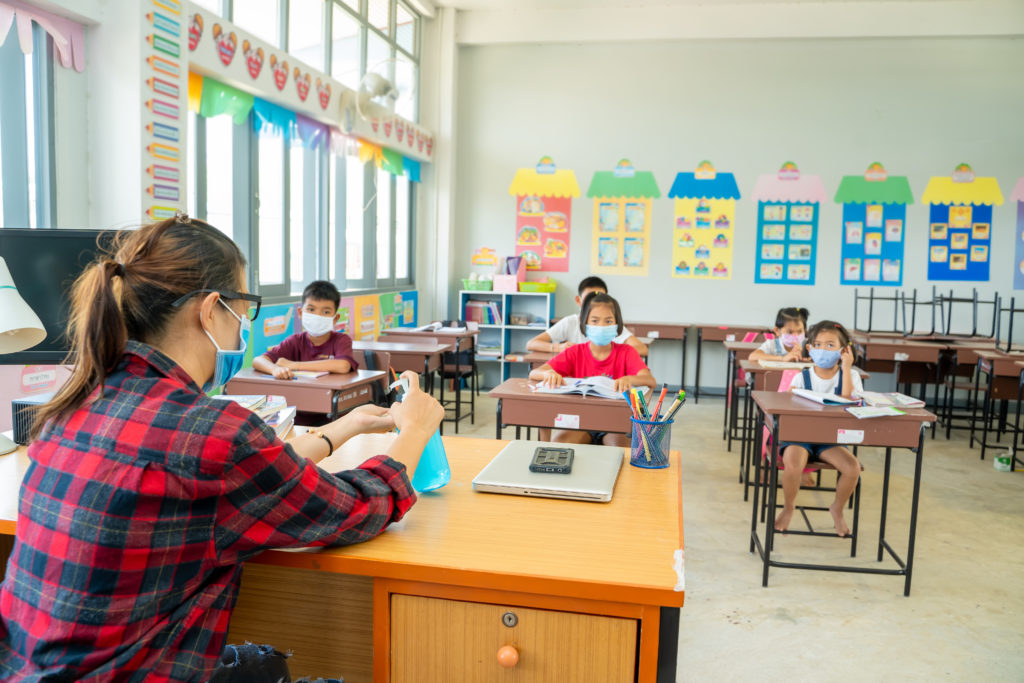The purpose of school transcends textbooks and lessons. Do not make the mistake of thinking that the
future of education is synonymous with online classes.
TEAM TLT
Though schools and colleges across the globe are closed, examinations postponed and admissions paused, every household is turning into a school. Everyone, be it the common man or an entire government, is in a learning mindset, trying to learn from this pandemic and adapting their life to moving ahead. Adaptability is the key to evolution. Schools now face the new challenge of how they can adapt to the future of education – and figuring out what this future constitutes.
The readily available alternative for schools was to latch on to any one of the online tools available to connect with the students and ensure that they did not miss out on the time at hand to support the children in the coming academic year. G Beena, Principal of Jawahar Navodaya Vidyalaya, Tumkur, says, “Teaching and learning cannot be stopped. We are continuing it through online classes. Almost all teachers took online classes in April through a streamlined schedule.“
Almost all schools in urban India have taken the online tools seriously in reaching out to the students during these tough times. “Technology came to our rescue in bridging the gap and reach each and every door. Our teachers underwent several trainings and are set to handle this new challenge,” says Shubhangi More, Principal of KLE School, Dharwad.
This online learning is new. The learning environment is new. For students to come to terms with these changes will take time. Especially for children from households where computers and internet are still in the luxury list, it seems that the discussion of classes online has not taken their circumstances into
consideration. The school managements and regulators are, however, convinced that the students or the teachers have the necessary experience and exposure to technology and can be productive from day one. Preparing the students, teachers and parents for the new approaches has to be a measured process.
Initiatives by the Ministry of Human Resources Development such as ‘Bharat Padhe Online’ for crowdsourcing ideas to build effective online educational solutions, SMILE (Social Media Interface for Learning Engagement) by the Rajasthan government and similar efforts by other state governments have to be lauded for their intentions. However, in a country where the digital disparity is huge, these attempts might end up failing to benefit the majority. With the majority of households still lacking access to computers or internet, the urgency to move towards online education has to be well thought through.
Schools have a bigger role in contributing to the social strength of this great nation. Jumping on to the online education bandwagon because it seems as if it will be the “new normal” and encouraging students, parents and others involved in the education system to fall in with these views and actions may not be a wise idea. These online platforms will limit the role of the schools to academics, and not entirely even there. They mainly facilitate exchange of information. Banking on them for the transformations that schools have to deliver will be of very little use. Though it is undeniable that technology will play a critical role in education sooner or later, we must be aware of its limitations.
Before this pandemic, one of the major challenges for the teachers was to engage disengaged children in the classroom. This challenge may not be obvious now but will only become greater with remote learning. It is going to reveal more jarring outcomes at the end of the academic year. It will favour the advantaged minorities and put rural India at a disadvantage vis-a-vis urban India. These are sensitive social issues that we should not ignore. Without being customised to the varying exposure levels of students across the country, online education will fail to achieve its purpose.
NCERT’s listing of learning outcomes for the secondary education level and the recent communication by CBSE stressing on the need for CBE (competency-based education) are appreciable efforts. Hopefully, the regulators have a clear understanding of the constraints in implementation and are equipped to address them. Higher order thinking and analysing and applying the learning are skills that cannot be nurtured through online teachings and assignments. The intended outcomes and competencies should not be compromised despite the current challenges. Education is the only hope of crores of people in India and the role of the government and regulators should be to help the next generation realise its dreams. As we at The Learned Talk have been insisting since our inception,
investing in teacher empowerment is the key to ensuring effective implementation and greater rewards for the objectives of CBE.
A complete revolution – a fundamental change in the purpose, pedagogy and people – has been long pending in the Indian education system. Today this pandemic is forcing a change on us and we are left with no choice but to change. It is up to us what we want to change and how. It is a social
responsibility that we do not dilute this change with just a few alterations. This change in education has the capacity to change the lives of 1300 million lives in India and can have a huge impact on the
global scenario. Let us be sincere, let us make an honest effort to discover what should be done and do it.









